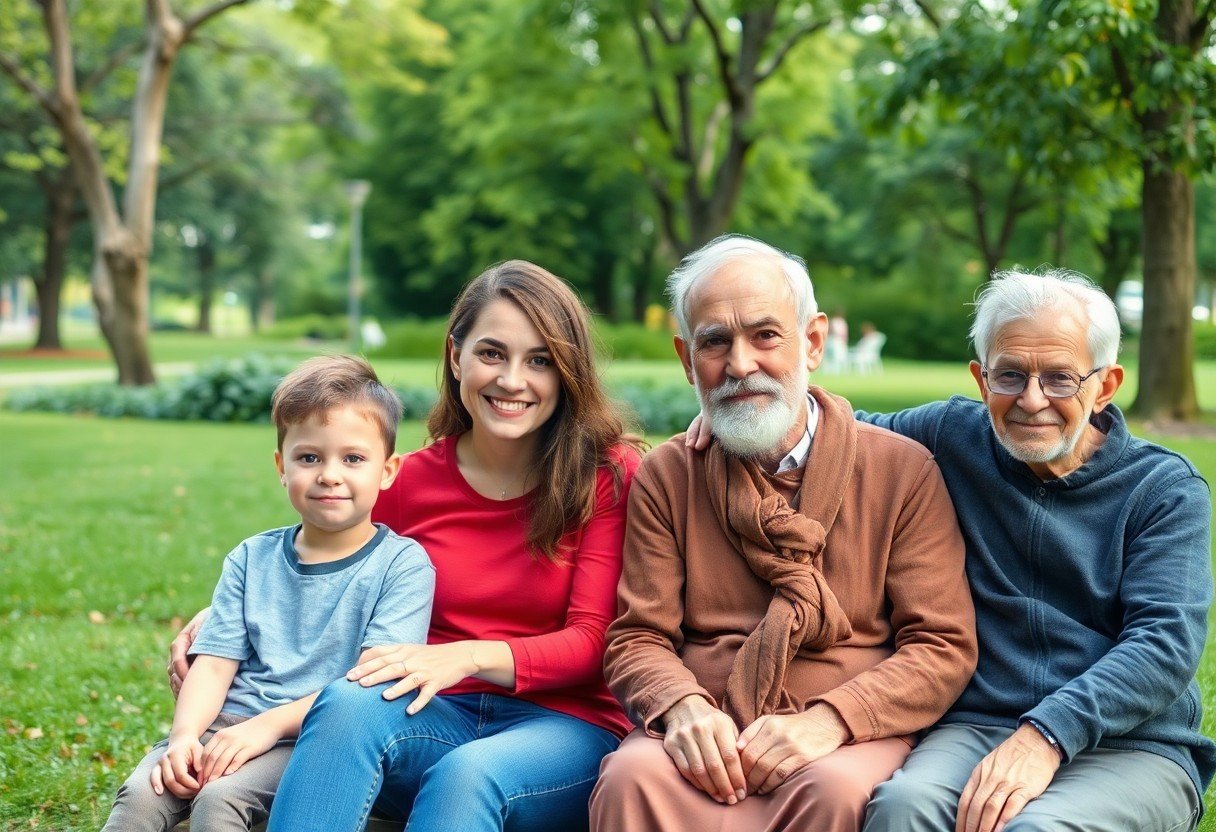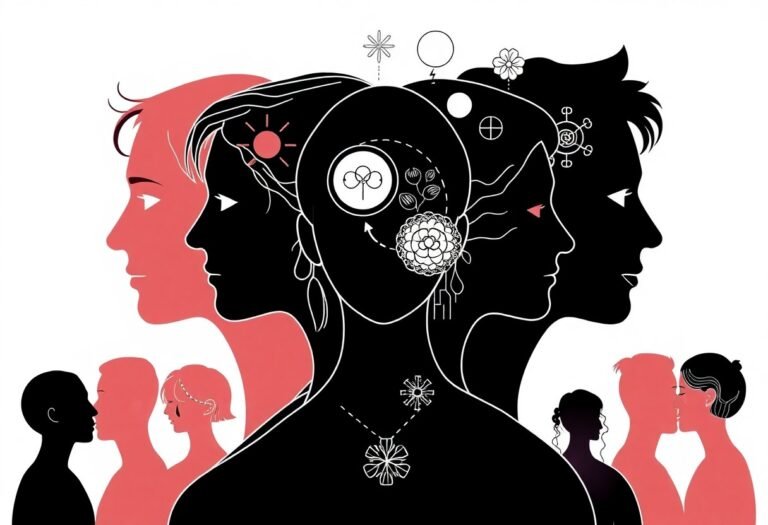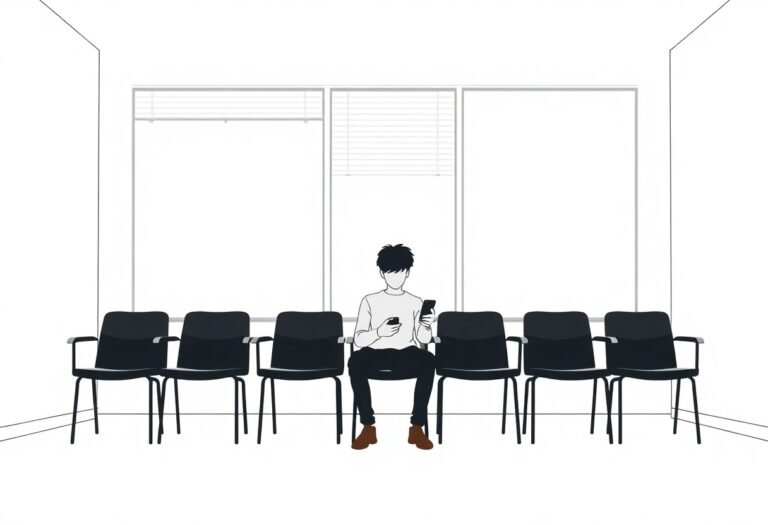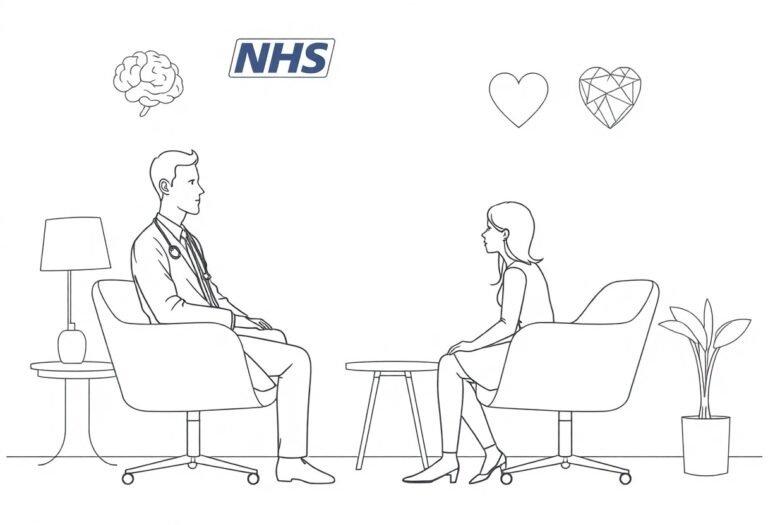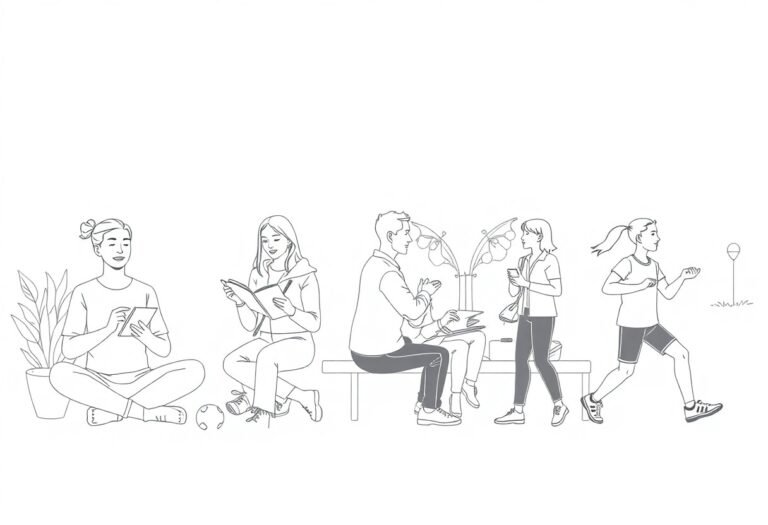How Mental Health Is Viewed Across Generations
Just as times change, so do the perspectives on mental health among different generations. You might notice that attitudes and understandings can vary significantly between your grandparents, parents, and even your peers. In this post, we’ll explore how mental health is viewed across generations, highlighting key differences and similarities that shape conversations today. Understanding these shifts can help you connect with others and promote compassion for varying experiences surrounding mental health.
Key Takeaways:
- Older generations may view mental health concerns as a stigma, often associating them with weakness, while younger generations tend to be more open and accepting of discussing mental health issues.
- Access to mental health resources has improved significantly over the years, with younger generations benefiting from greater availability of therapy and support groups.
- The language used to describe mental health has evolved, with newer generations embracing more inclusive and understanding terminology compared to previous cohorts.
- Generational differences are evident in coping mechanisms, with younger individuals more likely to utilize technology and social media for support and mental health awareness.
- Family dynamics play a role; older generations may prioritize stoicism and self-reliance, while younger generations often encourage vulnerability and seeking help when needed.
1. Mental health stigma varies significantly among different generations.
2. Older generations often view mental health as taboo.
3. Younger generations prioritize mental wellness and open discussions.
4. Social media influences modern perceptions of mental health.
5. Access to resources has improved with younger generations.
6. Generational differences affect coping strategies and treatment approaches.
Understanding Mental Health in the Past
Your perspective on mental health today may differ significantly from how it was viewed in past generations. Historically, mental health often lacked understanding and compassion. Many individuals struggled with unrecognized issues, and the concept of mental illness was not widely accepted. As you explore into history, you’ll discover that the societal perceptions were shaped by fear, ignorance, and a lack of support systems for those in need.
Stigmas and Misconceptions
Besides ignorance, stigmas and misconceptions fueled the misunderstanding of mental health. Those experiencing mental health challenges were often seen as weak or flawed, which created barriers for individuals seeking help. When you look back, it’s evident that these harmful narratives impacted countless lives, discouraging open conversations about mental well-being.
Early Views on Mental Illness
About two hundred years ago, mental illness was often linked to supernatural forces, and many people were treated as outcasts rather than patients deserving compassion and care. Historical accounts showcase how individuals were isolated from society and often subjected to harsh treatments that only exacerbated their conditions.
Past societies often viewed mental illness through a lens of fear and mystery. Lacking modern understanding, many believed mental health issues were a result of demonic possession, sin, or moral failings. Individuals struggling with these challenges faced discrimination and were frequently institutionalized. This inability to empathize with mental health struggles led to cruel treatments, such as confinement or physical punishment, making it clear that compassion and proper care were sorely lacking during those times. Understanding this context helps you appreciate how far we’ve come in advocating for mental health today.
The Baby Boomer Generation
It’s fascinating to consider how the Baby Boomer generation views mental health, having grown up in a time when discussion around these issues was largely stigmatized. Many Baby Boomers often viewed mental health struggles as a personal weakness, leading them to internalize their feelings instead of addressing them openly. This era prioritized resilience and self-reliance, creating a reluctance to seek support.
Changes in Perception
To understand the evolution of mental health awareness, think about how perspectives have shifted over the years. Baby Boomers have increasingly recognized that mental health is as important as physical health. Gradually, the stigma surrounding mental health conversations has diminished, encouraging more open dialogue and acceptance within their communities.
Seeking Help: A Shift
Above all, there’s been a noticeable shift in how Baby Boomers approach seeking help for mental health issues. Many have begun to acknowledge the benefits of therapy, counseling, and support groups, turning to professional help as a resource rather than a last resort. This shift reflects a broader understanding that everyone deserves support, and seeking help is a sign of strength, not weakness.
Plus, this changing attitude has led to Baby Boomers exploring various avenues for mental wellness. Whether it’s attending workshops, joining support groups, or even participating in meditation classes, you may find yourself engaging with these alternatives more than previous generations. By challenging outdated beliefs, they are redefining what it means to take care of one’s mental health, setting a positive example for younger generations navigating similar issues.
Generation X and Mental Health
Despite being the first generation to openly discuss mental health issues, Generation X often struggled with stigma and misunderstanding. Many of your parents may have created a culture where ‘toughing it out’ was favored over seeking help. However, as they moved into adulthood, issues like depression and anxiety began to gain more recognition, laying the foundation for more open discussions in the years to come.
Balancing Work and Life
Before it became a buzzword, Generation X was already striving to find a balance between work and life. You might have seen your parents juggling demanding careers and family responsibilities, often leading to burnout or stress. This juggling act fueled the desire for more flexible work environments and a focus on well-being in the workplace.
Awareness and Advocacy
Among the defining traits of Generation X is their growing awareness of mental health issues. You might have noticed how they began advocating for mental well-being in both personal and professional settings, creating a bridge to better understanding for future generations.
In fact, many individuals from Generation X are now leading initiatives that promote mental health awareness. They work tirelessly to break down barriers and encourage conversations around mental well-being, ensuring that their voices and experiences contribute to a more supportive environment. By sharing personal stories of struggle and resilience, they empower you and others to seek help and prioritize mental health without fear of judgment.
Millennials and Mental Health Awareness
To millennials, mental health is not a taboo topic but an imperative part of overall well-being. This generation has championed conversations around mental health, pushing for greater acceptance and understanding. You may notice how many young people prioritize self-care and seek therapy as a standard practice. By sharing their experiences, millennials are helping to dismantle the stigma that has historically surrounded mental health issues.
Embracing Vulnerability
For millennials, embracing vulnerability is both a strength and a pathway to healing. You might find that generations before you often viewed emotional expression as a weakness; however, millennials have flipped that notion on its head by openly discussing their struggles. This openness encourages you and others to share personal experiences, ultimately fostering a supportive community focused on mental health.
Social Media’s Role
Above all, social media plays a significant role in shaping millennials’ perspectives on mental health. You likely use social platforms to connect with like-minded individuals, share experiences, and access mental health resources. These digital spaces allow you to find support and community, making it easier to discuss challenges and celebrate progress.
To further understand social media’s impact on mental health, consider how it can both uplift and challenge you. On one hand, platforms like Instagram and Twitter can provide inspiration and community through mental health advocates and shared stories. However, they can also lead to comparison and anxiety if you’re not mindful of how you engage. By curating your feed and focusing on positive content, you can harness the power of social media to enhance your mental health journey.
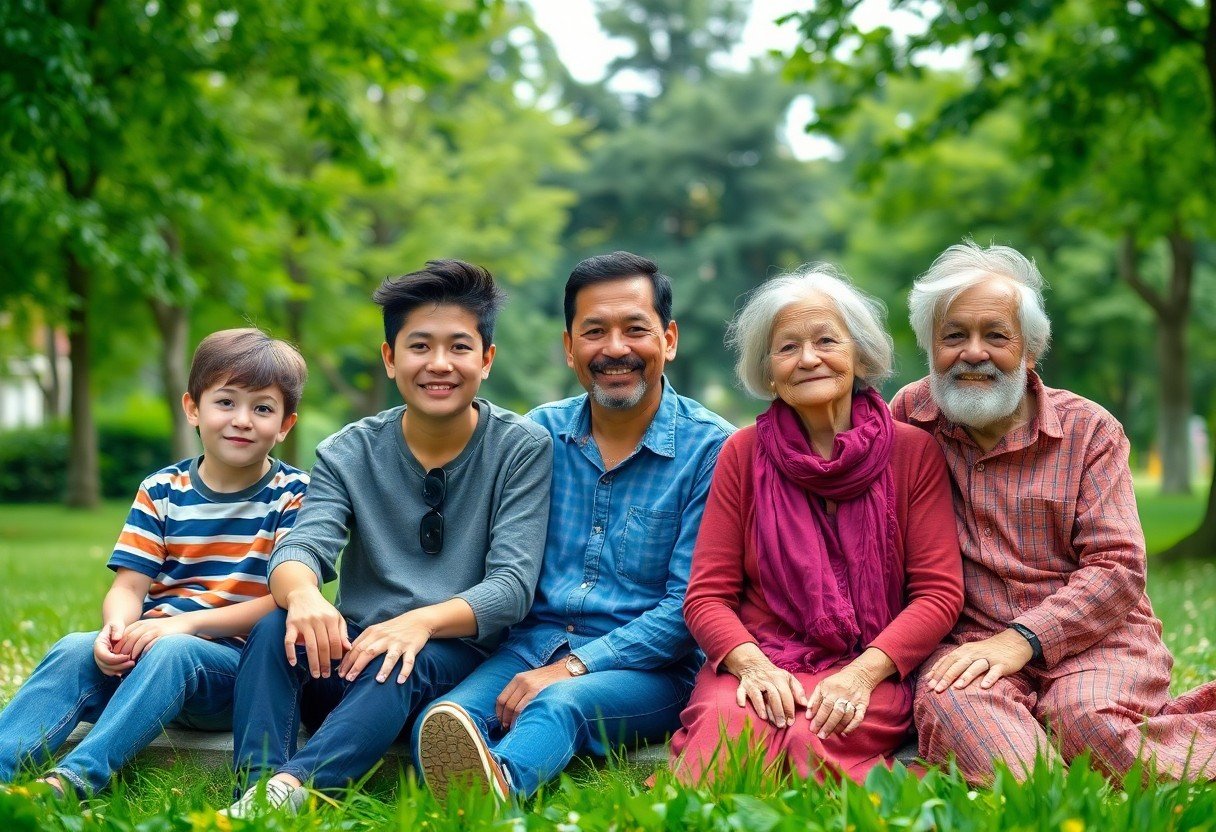
Generation Z: The New Wave
Now more than ever, Generation Z is paving the way for a different understanding of mental health. With a strong emphasis on openness and acceptance, they are challenging old stigmas while actively seeking to create a more supportive environment. This generation is not just talking about mental health; they are making it a central part of their lives and encouraging others to do the same.
Open Conversations
About mental health, Generation Z emphasizes the importance of open conversations. They have become advocates for discussing emotions and struggles without shame, leveraging social media as a platform to share experiences and seek support. By encouraging dialogue, they create lasting connections that help others feel less alone in their journeys.
Redefining Mental Wellness
An crucial part of Generation Z’s approach to mental health involves redefining what wellness looks like. They are moving beyond traditional ideas of mental health, acknowledging the significance of self-care, mindfulness, and emotional intelligence as key components of overall well-being.
Conversations about mental wellness are evolving, with Generation Z demanding a more holistic perspective. You may notice that they integrate practices like yoga, meditation, and creative outlets into their routines, emphasizing a balanced approach that nurtures the mind and soul. This shift is inspiring everyone to rethink how they prioritize their own mental health, leading to healthier lifestyles and increased awareness.
Bridging the Gap Across Generations
All generations can learn from one another, fostering a deeper understanding of mental health. By engaging in open conversations, you can help reduce the stigma and misconceptions that may exist among different age groups. This shared dialogue not only educates but also strengthens relationships, creating a supportive environment where everyone can thrive together.
Learning from Each Other
Behind every story is a lesson waiting to be learned. By listening to the experiences of older generations, you can gain insights into how mental health issues have evolved over time. Conversely, sharing your own experiences with younger individuals allows you to contribute to an ongoing dialogue that can help reshape perspectives and encourage empathy among all ages.
Building a Supportive Community
Across generations, it’s important to cultivate spaces that promote understanding and kindness. By connecting with others on a personal level, you can create a community that prioritizes mental well-being for everyone. Listening to diverse voices ensures that everyone feels included, fostering an environment where support is readily available, and resources are shared.
Another effective way to build a supportive community is by organizing events that encourage intergenerational connections. Workshops, discussion panels, or even casual meetups can provide opportunities for you to share your insights while learning from others’ experiences. Together, these activities create networks of support that are not only uplifting but also important for enhancing collective mental health across generations.
To wrap up
Considering all points, it’s clear that understanding how mental health is viewed across generations helps you appreciate the evolution of these perceptions. Each generation carries its unique experiences and challenges, influencing how you approach your own mental well-being. By embracing the lessons from past generations while advocating for modern perspectives, you can contribute to a more compassionate and informed conversation about mental health. Keeping an open mind and sharing your own insights can help bridge the gap between generations and foster a healthier society for everyone.
FAQ
Q: How has the perception of mental health evolved from older generations to younger ones?
A: In older generations, mental health was often stigmatized and viewed as a sign of weakness. Many individuals were discouraged from discussing their mental health issues openly. Conversely, younger generations are more inclined to recognize the importance of mental well-being, embracing open conversations about mental health challenges and advocating for a supportive environment. This shift has led to a greater acceptance of therapy and counseling among younger people.
Q: What role does cultural background play in how different generations view mental health?
A: Cultural background significantly influences perceptions of mental health across generations. In some cultures, discussing emotions or seeking help is still considered taboo, particularly among older individuals. Younger generations, however, are often more willing to challenge these norms and seek support. This cultural shift reflects a growing awareness and acceptance of psychological well-being as an integral part of overall health, with diverse cultural influences shaping the dialogue based on varying levels of acceptance.
Q: Are there specific mental health issues that are more recognized or discussed in newer generations?
A: Yes, newer generations tend to focus on issues such as anxiety, depression, and stress management, partly due to the increased prevalence of these conditions in modern society. They also address topics like social media’s influence on mental health and the effects of climate anxiety. As mental health conversations broaden, younger people are more likely to share their experiences and advocate for change, pushing for more visibility in these areas compared to older generations.
Q: How does access to mental health resources differ across generations?
A: Access to mental health resources has improved significantly, particularly for younger generations. The rise of teletherapy, mental health apps, and online support communities has made it easier for individuals to seek help without the stigma that may deter older generations. However, many older adults still face barriers, including a lack of information and outdated perceptions about mental health services. The awareness and use of these resources are helping to bridge the gap between different generations.
Q: What impact does social media have on the way mental health is discussed among different generations?
A: Social media has transformed the conversation around mental health, particularly for younger generations. Platforms provide a space for individuals to share their experiences, receive support, and educates others about mental health. While older generations may be less comfortable engaging in these discussions online, younger people often leverage social media to foster a sense of community and reduce stigma. This influence has played a key role in driving mental health awareness and advocacy across various demographics.

